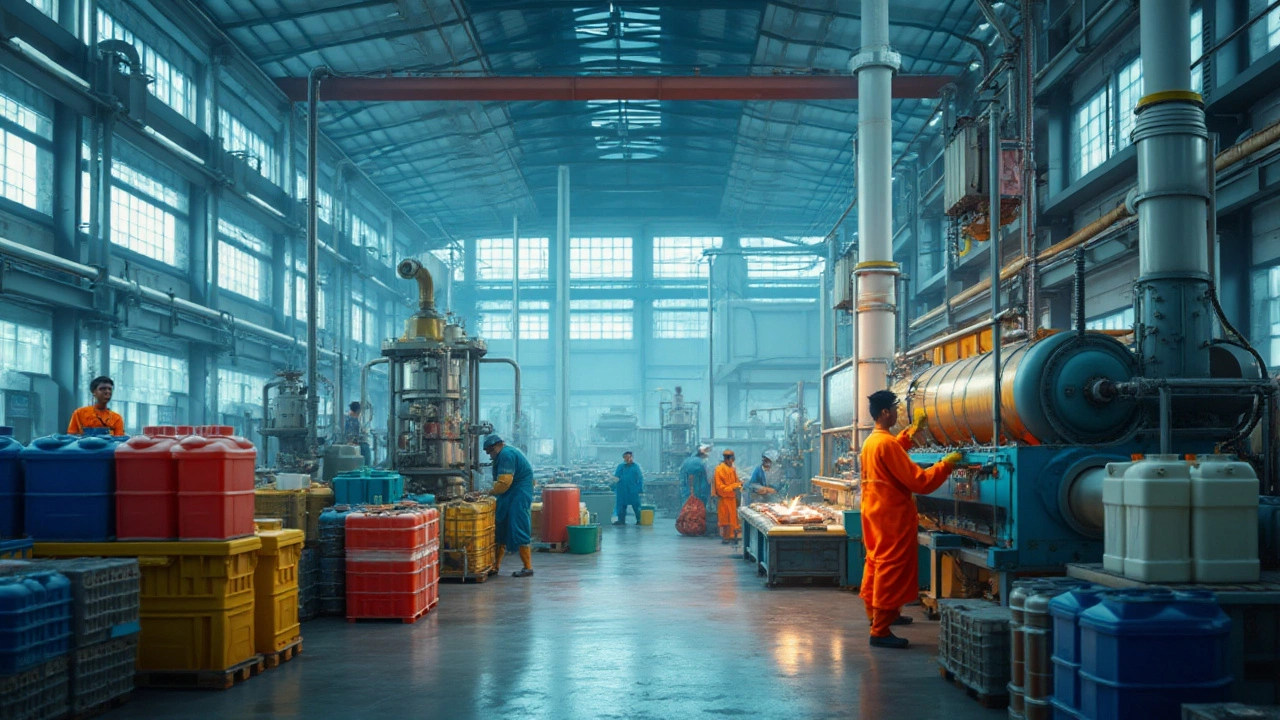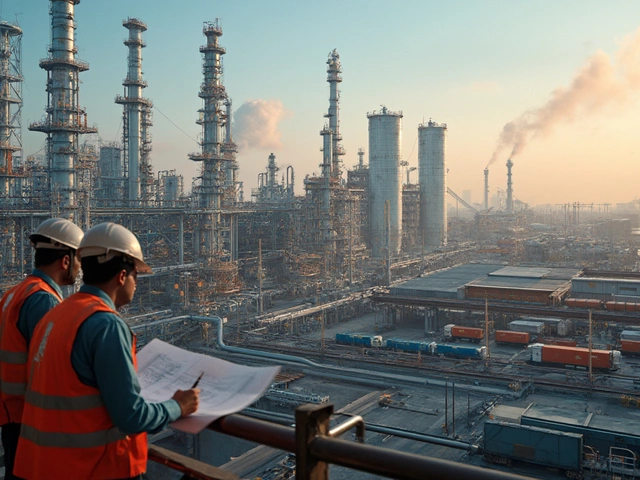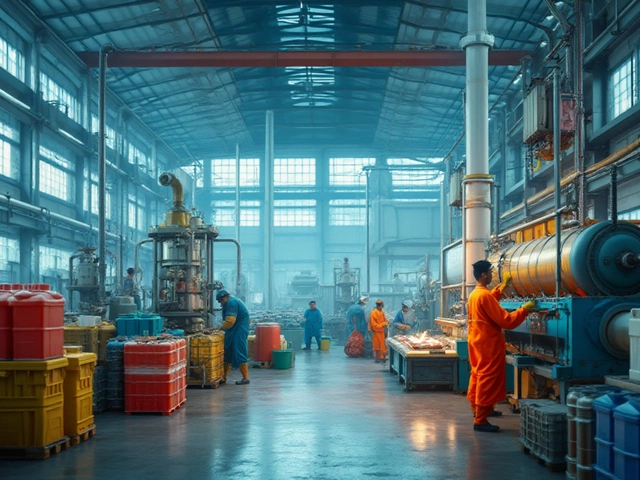India has become a powerhouse in the chemical manufacturing industry, producing a vast array of chemicals that are vital to both domestic and international markets. The diverse range of chemicals includes everything from basic industrial chemicals to highly specialized compounds used in various applications.
With a rich history of innovation and rapidly expanding production capacities, the Indian chemical sector continues both to meet global demand and drive economic growth within the country. Explore the different categories of chemicals produced in India, discover the key players dominating the market, and understand the various factors driving the industry's impressive growth.
Types of Chemicals Produced
India, as a leader in the chemical manufacturing sector, produces a wide spectrum of chemicals that cater to various industrial needs. Basic chemicals form the backbone of the manufacturing industry. This category includes a wide array of compounds such as acids, alkalis, and salts, which are vital for numerous processes. India has well-established production facilities for sulfuric acid, caustic soda, and soda ash. These are utilized extensively in industries like textiles, paper, detergents, and fertilizers. Another important group is petrochemicals, derived from petroleum and gas. They include ethylene, propylene, benzene, and toluene, which serve as precursors for a myriad of synthetic materials ranging from plastics to synthetic rubber.
Then there's the specialized segment of specialty chemicals. These are manufactured in lower volumes but are high in value due to their customized applications in pharmaceuticals, agrochemicals, paints, and dyes. India excels in the production of dyes and pigments, capturing a significant market share globally. Furthermore, there's a robust presence of agrochemical manufacturing, producing fertilizers and pesticides that are essential for agriculture, a sector that supports the livelihood of a vast majority of the population. The pesticide and insecticide variant plays a critical role in safeguarding crops and enhancing yield. According to the Indian Chemical Council, the specialty chemical segment is expected to grow annually at a rate of 12 percent, illustrating its vital role in the industry.
Pharmaceutical chemicals are yet another crucial category, placing India as a significant player in the global pharmaceutical supply chain. India is often referred to as the 'Pharmacy of the World,' exporting generic medications across the globe. These chemicals include active pharmaceutical ingredients (APIs) that form the backbone of countless life-saving drugs. The growth in this segment has been propelled by India's advanced R&D capabilities and cost-effective production techniques. A senior industry analyst once noted,
"The Indian pharmaceutical chemical industry continues to thrive as it balances innovation with affordability, catering to the global demand for essential medications."The industry's ability to innovate and adapt quickly to changing global requirements has made it a cornerstone of the Indian economy.
Performance chemicals are yet another growing field within India's chemical production. These chemicals enhance the performance of materials and are used extensively in automotive, consumer goods, and various industrial applications. From adhesives and sealants to high-performance plastics, the range is diverse and expanding. Recent data highlights the rise in demand for these materials as industries globally look for solutions that offer efficiency and sustainability. An interesting aspect is how manufacturers are increasingly focusing on eco-friendly versions, catering to a more environmentally conscious world.
Finally, biotechnology chemicals form a smaller, emerging sector. With the shift towards sustainable and environmentally friendly products, there's been a surge in the production of biochemicals, including enzymes and polymers, used in food processing, cosmetics, and animal feed. The diversity in India's chemical manufacturing landscape is testament to its innovative capabilities and adaptability. In conclusion, the spectrum of chemicals produced in India not only supports its industrial needs but also establishes its position in the global market as a key player in the export of a wide variety of chemicals, fostering economic growth and development. This dynamic sector continues to evolve, paving the way for future advancements and contributions on the world stage.
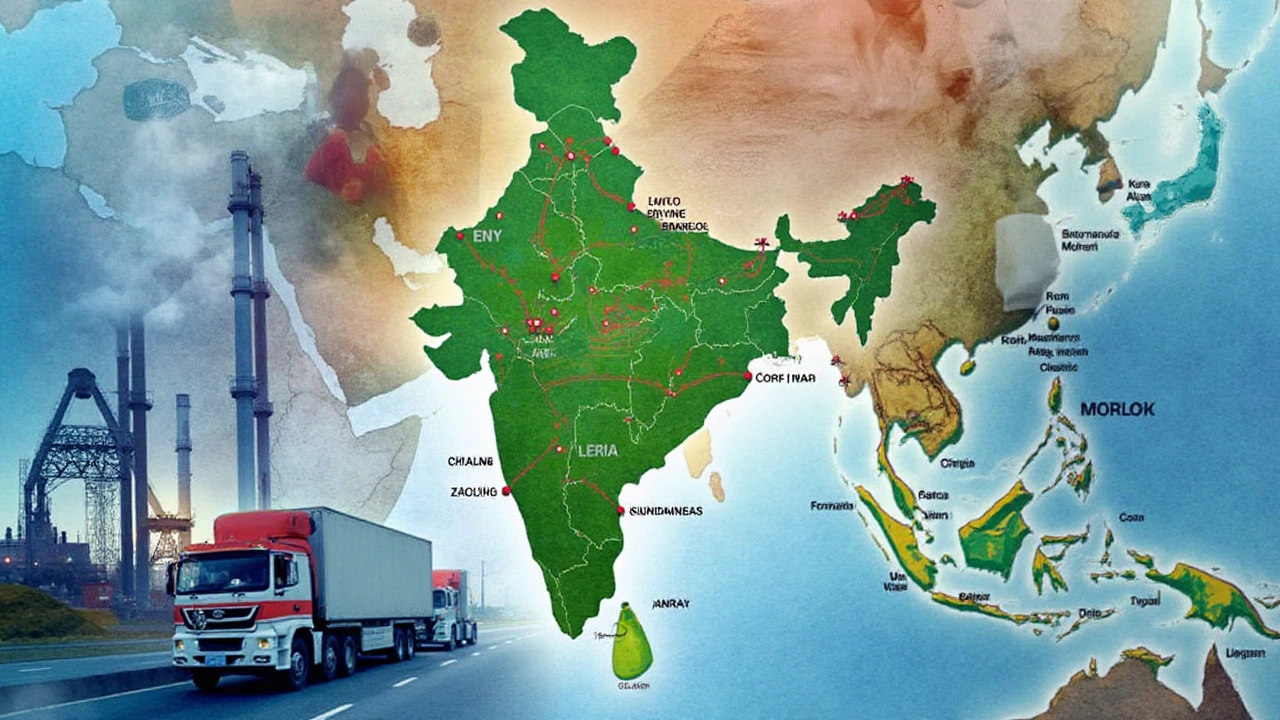
Major Chemical Manufacturers
India's chemical industry is not just vast, but also incredibly diverse, with an impressive mix of both large-scale companies and smaller, specialized firms making a significant impact on the global stage. The major players in this vibrant industry not only cater to domestic demands but also export a substantial portion of their products to international markets. Companies like Tata Chemicals, Reliance Industries, and BASF India are key contributors, each bringing distinct strengths and innovations to the table.
Tata Chemicals, a behemoth in the industry, has made a name for itself with its vast range of products, from soda ash to agricultural chemicals, positioning itself as a leader in both sustainability and innovation. With a focus on new-age solutions, Tata Chemicals continues to adapt and expand into new territories, ensuring its stronghold in the market. Similarly, Reliance Industries, with its petrochemical wing, commands a large share of the basic industrial chemicals segment. Known for its massive production capacities and efficient supply chain management, Reliance sets the benchmark for operational excellence in the sector.
BASF India, a subsidiary of the global giant BASF, plays a critical role in shaping the specialty chemicals market in India. With an emphasis on research and development, this company consistently brings cutting-edge products to market that are geared to meet the specific needs of its diverse clientele. A renowned spokesperson from BASF once said,
"Innovation is at the core of our journey, driving us to constantly improve and deliver solutions that cater to tomorrow's needs."
Another key player, UPL Limited, excels in the agrochemical sector, providing essential chemicals that help boost productivity in the agriculture industry. UPL prioritizes sustainable practices and invests heavily in R&D to develop products that address the challenges faced by modern farmers. Similarly, Aarti Industries, with its wide product portfolio in pharmaceuticals and intermediates, illustrates the versatility and depth of the Indian chemical industry.
The industry also benefits from numerous mid-sized companies who have carved niches in specific segments, displaying the incredible diversity within the Indian chemical marketplace. Companies such as Atul Ltd and PI Industries further illustrate this, with each contributing unique solutions to their respective fields. The sector is constantly evolving, and this dynamic nature ensures that India remains a major player in the global chemical landscape.
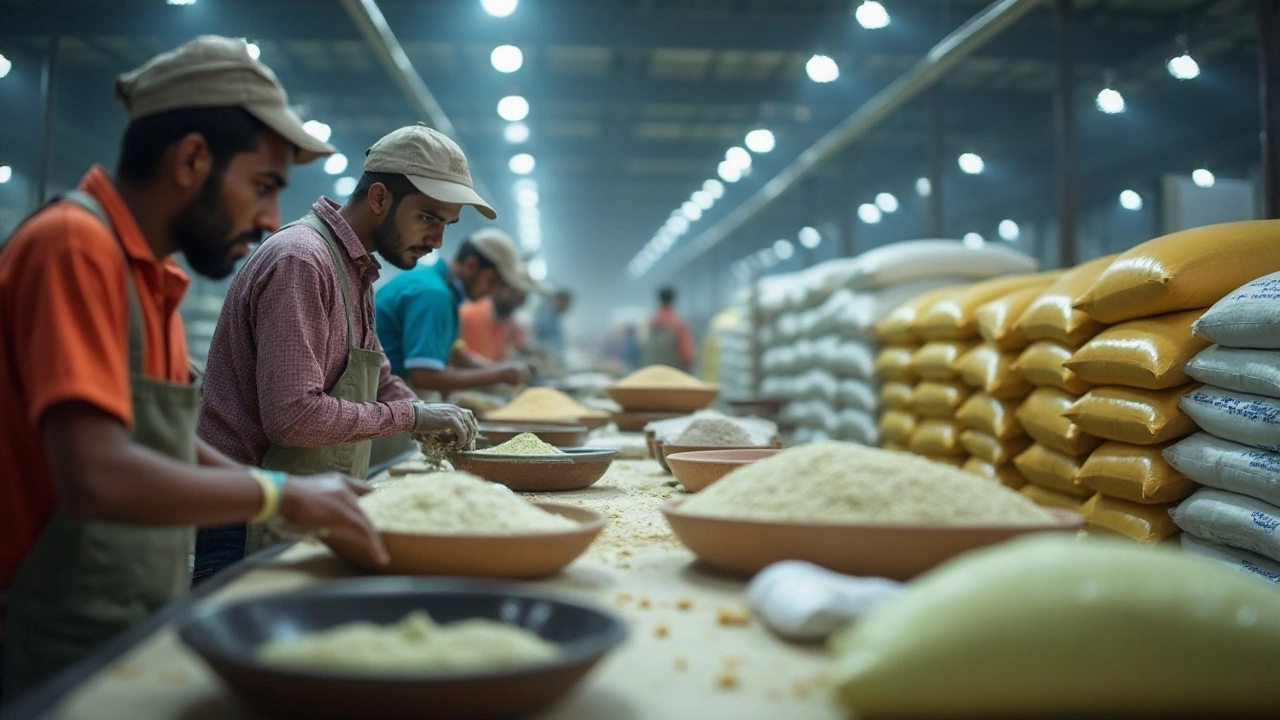
Industry Growth Factors
The Indian chemical manufacturing industry is experiencing robust growth, driven by a confluence of factors that are reshaping its landscape. One of the primary growth factors is the abundance of raw materials, which includes a wide variety of minerals and petrochemical products. These resources provide a strong foundation for the creation of various chemicals, enabling manufacturers to produce at competitive costs. The country has also developed an efficient supply chain that minimizes transportation costs and reduces delays, enhancing the overall appeal of India as a manufacturing hub.
A second significant factor contributing to growth is governmental support. The Indian government has rolled out several initiatives aimed at enhancing the chemical sector, including relaxed regulations, subsidies, and incentives for new companies entering the market. Policies focused on sustainability have also sparked innovation, as manufacturers seek to develop eco-friendly products and processes. Additionally, skill development programs are ensuring a steady supply of trained professionals, further bolstering India's position in the global chemical arena.
Furthermore, the Indian market itself is evolving. With a growing middle class and increased urbanization, the demand for chemicals in varied applications is on the rise, from consumer goods to high-tech industries. The trend towards digitization and automation within factories is also playing a crucial role in modernizing processes, leading to more efficient production and higher output than ever before. As technology intertwines with industry, manufacturers are increasingly able to explore new verticals and expand their market reach globally.
Foreign investments also play an enriching role in fueling the industry. India has attracted considerable attention from global players looking for opportunities to invest in a burgeoning market. These investments often come with knowledge-transfer agreements, enabling local companies to learn from international best practices. Increased partnerships pave the way for technological advancements and create synergies that promote innovation within the sector, moving it toward achieving higher operational efficiencies and international competitiveness.
In a quote from a report by the Federation of Indian Chambers of Commerce & Industry, it was highlighted that,
“The Indian chemical industry is poised for unprecedented growth. With a projected market size that could surpass $300 billion by 2025, the sky’s the limit.”This perspective underscores the potential and optimism surrounding the future of India's chemical industry. Such prospects inspire both local and global stakeholders to engage more deeply, capitalizing on emerging opportunities and strategic advancements.
Another favorable factor is adherence to international standards and practices. Indian companies are aggressively improving their compliance with global environmental, health, and safety standards, which bolsters their credibility on the world stage. This drive towards enhanced regulatory compliance not only ensures better safety for workers but also opens doors to more lucrative export markets, reinforcing India's reputation as a trustable manufacturing giant.
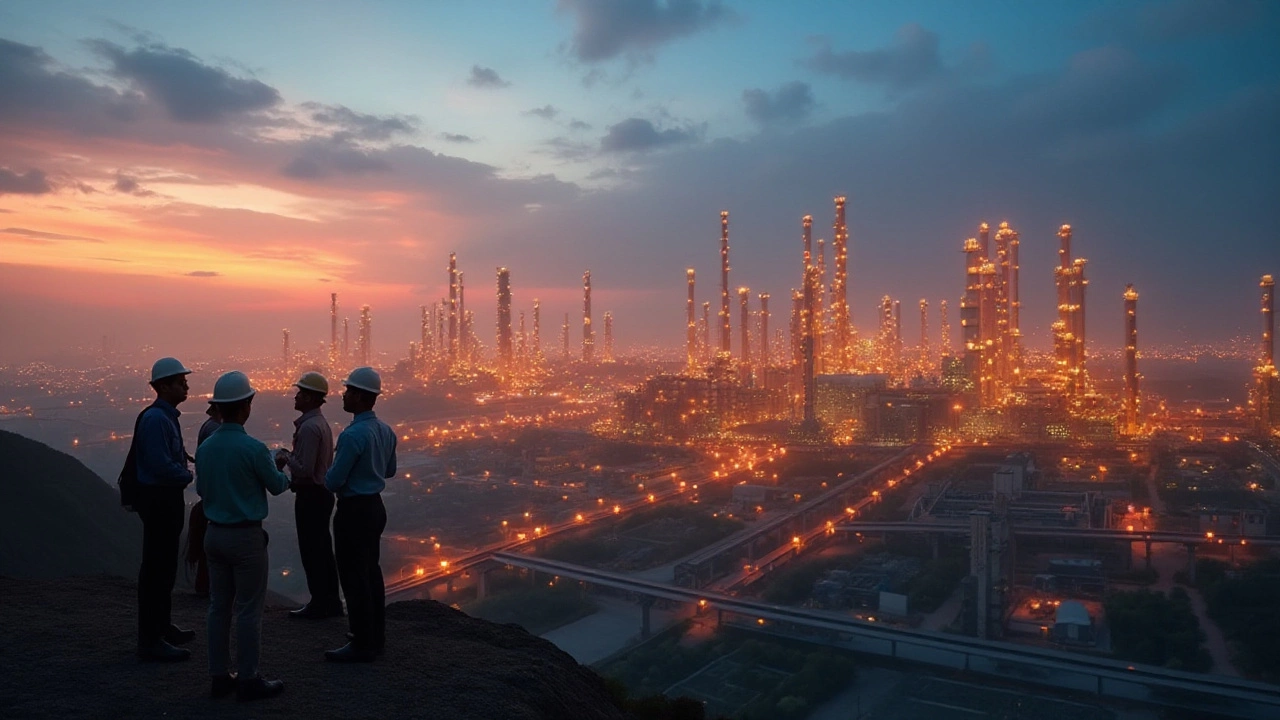
Future Prospects
With a rapidly expanding domestic market and increasing global demand, India’s chemical manufacturing industry is poised for significant growth in the coming years. As the world's third-largest chemical producer by volume, the nation is uniquely positioned to leverage its strengths in areas like cost competitiveness, technical expertise, and a strong trade infrastructure. The government's ongoing support for innovation, research, and sustainable practices is expected to further catalyze this expansion. A key factor in driving the future growth of the chemical sector is the surge in demand for specialty chemicals that are used in burgeoning industries such as automotive, electronics, and consumer goods. To keep pace with evolving consumer needs, manufacturers are increasingly focusing on value-added products and solutions that not only perform better but are also environmentally sustainable.
Moreover, the Indian government has introduced several initiatives under the 'Make in India' campaign, aiming to transform the country into a worldwide manufacturing hub. Policies fostering investment in infrastructure, reducing logistical inefficiencies, and easing environmental regulations are encouraging more companies to explore opportunities in the chemical manufacturing sector. Industry predictions highlight an expected compound annual growth rate of around 9% over the next decade. This anticipated increase speaks volumes about the potential of Indian manufacturers to capture a larger share of the global market. An industry expert noted that India's chemical industry could reach a turnover of billions of dollars by 2030, marking it as a critical player on the international stage.
The FICCI report suggests that 'Innovation remains the cornerstone of future growth, as companies invest heavily in R&D to offer products that align with global sustainable goals.'
The transformation of this industry also revolves around adopting digital technology and automation to streamline processes and improve efficiency. Big data analytics, AI-driven predictive maintenance, and Internet of Things (IoT) applications are just a few of the advancements helping manufacturers to cut costs, enhance productivity, and increase their competitiveness in the global market. Agrochemicals also present a bright spot for the sector, with India playing a crucial role in meeting the rising global demand for agricultural inputs. The nation’s prowess in producing both synthetic and organic crop protection products underscores its capabilities in delivering high-quality solutions that ensure food security for millions around the world.
Another promising aspect is the shift toward green chemistry, with local manufacturers increasingly adopting eco-friendly production methods that minimize waste and emissions. This trend not only helps in reducing the environmental footprint but also aligns with global environmental standards, ensuring India's chemical industry remains compliant with international regulations. Collaborative partnerships between Indian firms and global leaders are also leading to technological advancements, further enhancing the industry's capabilities. The future of India's chemical manufacturing is indeed brimming with immense potential, driven by both the resilience and resourcefulness of its stakeholders.
